
Baseball wisdom tells you that pitchers need an arsenal. Except Mariano Rivera ignored that gospel and threw basically one pitch for 19 years. Just one! And somehow he retired with a 2.21 ERA, 652 saves, and a postseason ERA of 0.70 that makes other relievers look mortal.
Everyone in the stadium knew exactly what pitch was coming. The hitter knew. The crowd knew. And yet almost nobody could hit it.
Disclaimer: Some images used for commentary and educational purposes under fair use. All rights remain with their respective owners.
Early Life and Discovery

The Mariano Rivera origin story starts in Puerto Caimito, Panama, a fishing village with dirt roads and no electricity. Born in 1969, Rivera spent his youth hauling fishing nets, developing shoulder strength that would later terrify MLB hitters.
At 18, Rivera joined a local amateur team as a shortstop, but fate intervened when their pitcher no-showed. The reluctant fill-in threw seven scoreless innings. Two weeks later, Yankees scout Herb Raybourn handed the skinny Panamanian kid $2,000 to sign.
Early Career Struggles and Injury
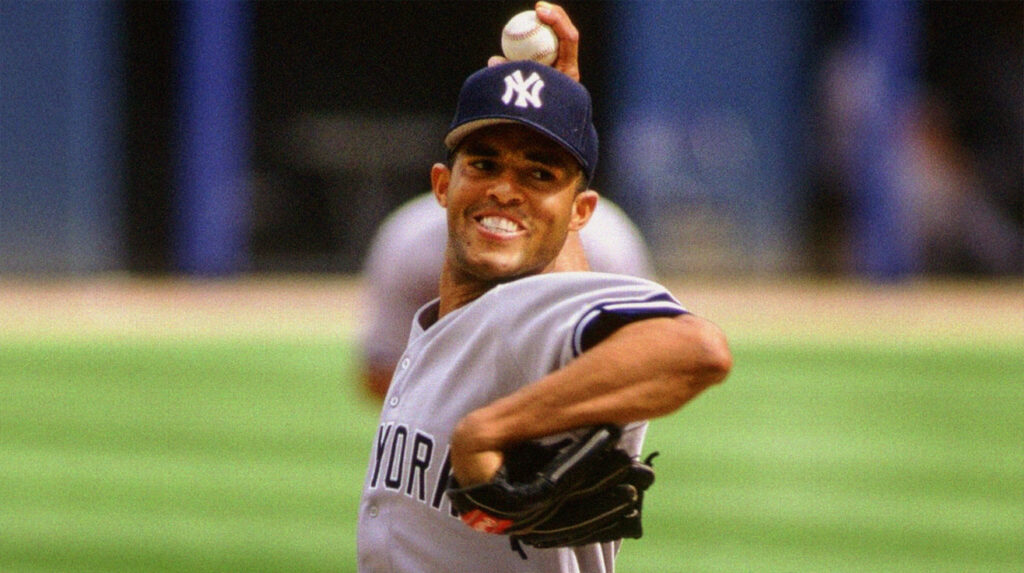
Rivera dominated his first pro season in 1990, posting a 0.17 ERA, but off-field challenges hit hard. Then came 1992, when his elbow gave out. Surgeons reconstructed his ulnar collateral ligament, the dreaded procedure that derails countless pitching careers.
But something almost supernatural happened during recovery. Rivera’s fastball – previously 87-88 mph – suddenly jumped to 94-95. By 1995, that mysterious velocity spike carried him to Triple-A Columbus, just one step from the Bronx.
MLB Debut and Transition to Relief Pitcher
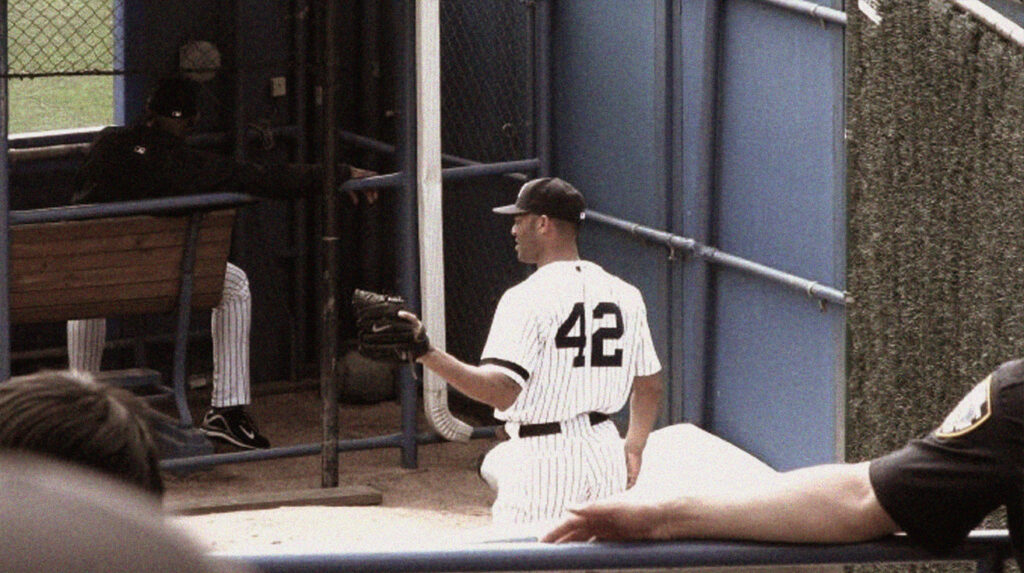
Rivera’s big-league debut on May 23, 1995, looked nothing like a Hall of Fame preview. His first four starts: 18 runs surrendered across 19 innings. The Yankees made what seemed like a demotion, but would prove the luckiest accidental promotion in baseball history.
To the bullpen he went. His fastball ticked up to 96 mph, and suddenly he was embarrassing professional hitters. That October, he delivered five scoreless playoff innings against Seattle.
1996 Season and First World Series Title
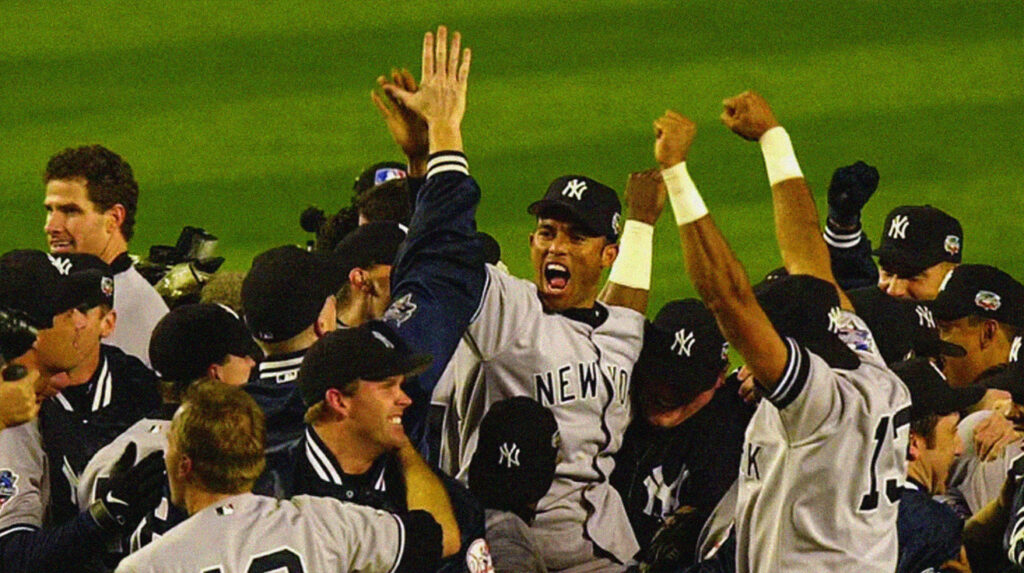
Rivera in 1996 was a cheat code for innings 7 and 8. He pitched 107.2 innings with 130 strikeouts and a 2.09 ERA, finishing third in Cy Young voting despite not starting or closing games.
April brought 26 consecutive scoreless innings across 12 appearances. Manager Joe Torre essentially told opponents: “You have six innings to score, then it’s game over.”
In the World Series against Atlanta, Rivera made four appearances, allowed just one run, and helped bring the trophy back to the Bronx for the first time since 1978.
The Discovery of the Cutter in 1997
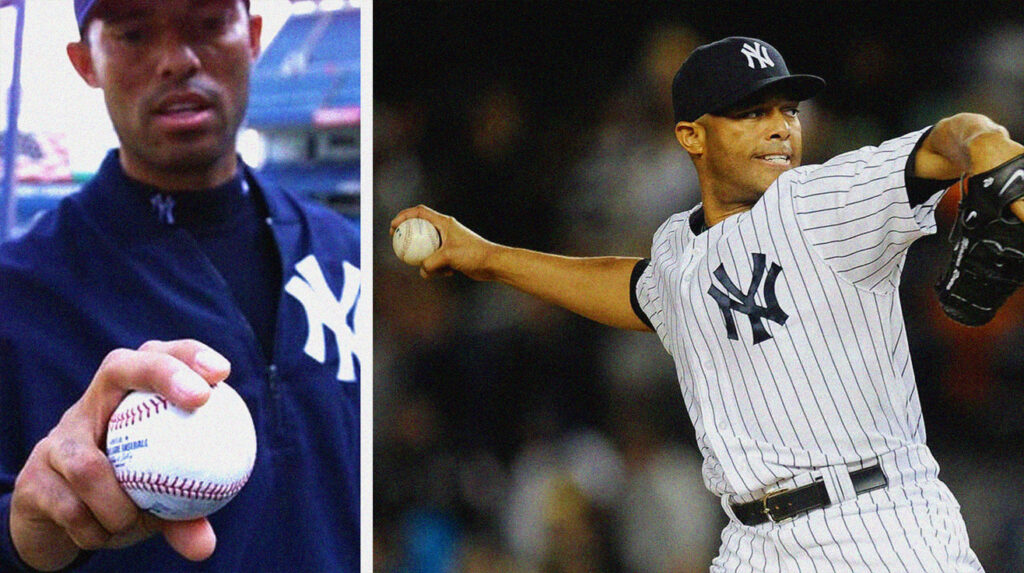
The greatest pitch of the modern era happened by accident during a casual game of catch. When Wetteland left for Texas, Rivera inherited the closer role and promptly blew three saves in his first six chances.
Then during a throwing session with Ramiro Mendoza, something weird happened. Rivera’s ball started darting sideways, moving late and sharp – up to 8 inches across the plate in the final 15 feet of flight.
He had stumbled upon the cutter – a pitch that appeared to be a straight fastball until the last split-second, when it would shatter bats and careers.
1998 Season and Second World Series Title
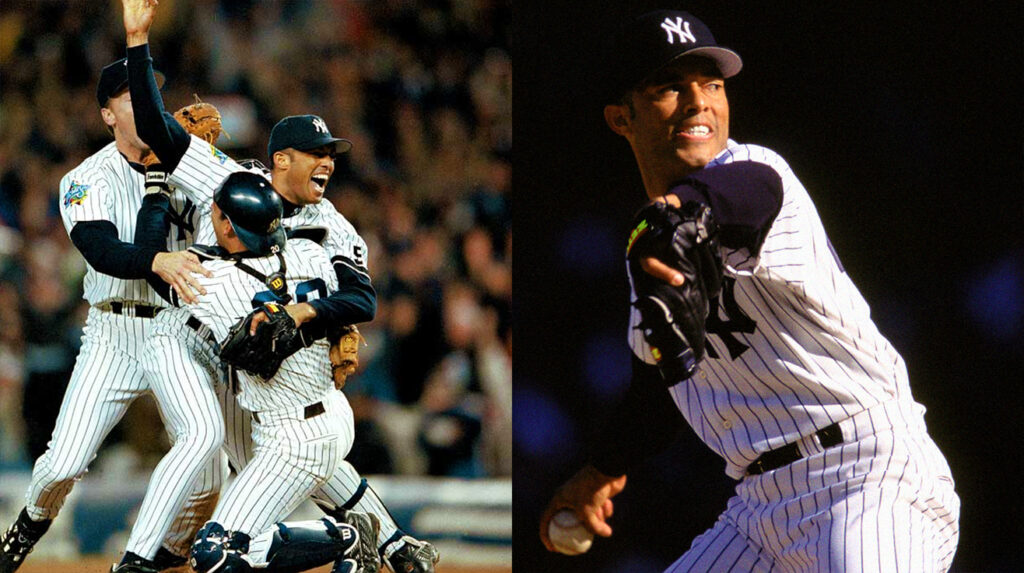
By 1998, Rivera had refined his cutter to the point where ninth innings against the Yankees felt like a horror movie – you know exactly what’s coming, but you’re still terrified. He posted a 1.91 ERA with 36 saves.
Those 1998 Yankees won 114 regular-season games, assembling what many consider the greatest team of the modern era. Rivera was their finishing move – the baseball equivalent of a Street Fighter character’s unblockable special attack.
The World Series against San Diego ended with Rivera on the mound as Yankees players dogpiled around him.
1999 Season and World Series MVP Award
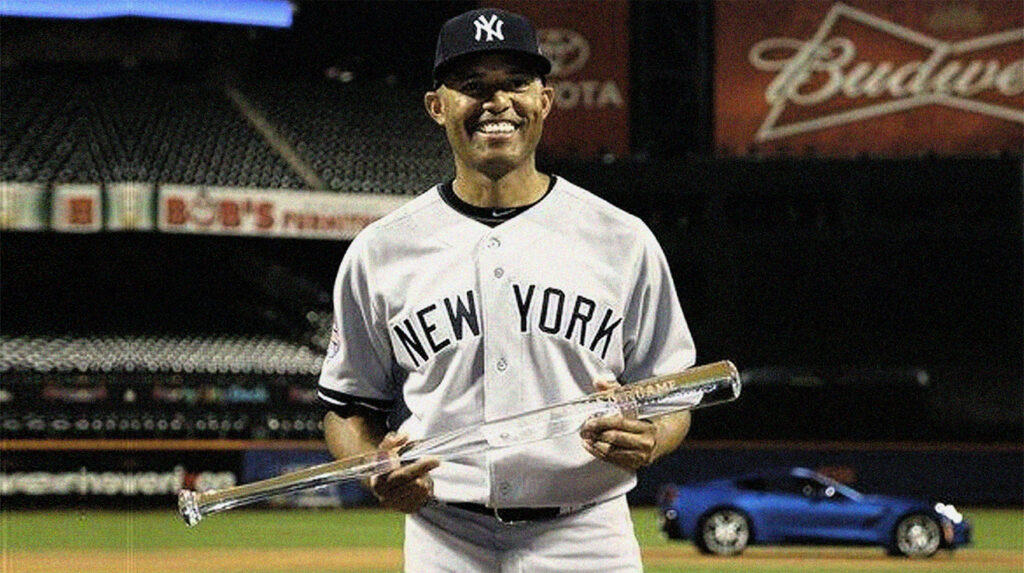
Rivera’s 1999 defied belief: his final 28 appearances of the regular season yielded zero earned runs. Opposing hitters managed a .136 batting average against him – basically turning MLB stars into high school pitchers trying to hit.
Against the Braves in the World Series, Rivera entered Game 1 to face Brian Jordan with the tying run on base. Three pitches, three broken bats – on consecutive swings.
Closers almost never win World Series MVP awards, but when you’re essentially playing a different sport than everyone else, exceptions get made.
2000 Season and Third Consecutive World Series Title
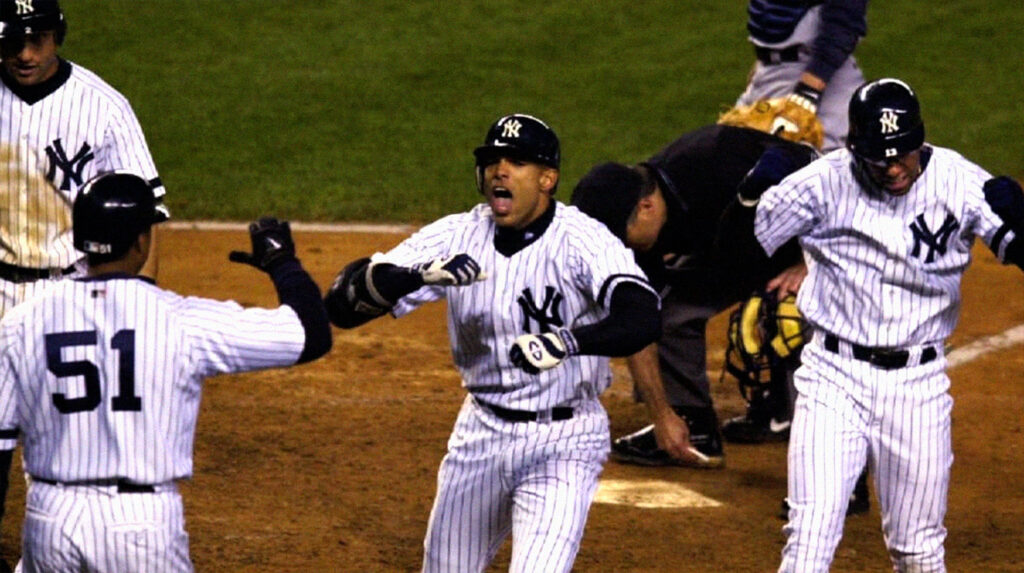
Dynasties aren’t supposed to exist in modern sports, yet the 2000 Yankees hunted a third straight title with Rivera as their weapon. During the regular season, he posted a 2.85 ERA with 36 saves, saving his best for October.
The postseason is where great players become legends. Rivera allowed just three earned runs throughout the entire playoffs.
In Game 5 of the Subway Series against the Mets, Mike Piazza’s deep fly ball settled into Bernie Williams’ glove, and Rivera became the first pitcher to record the final out in three consecutive World Series.
2001 Season and World Series Loss
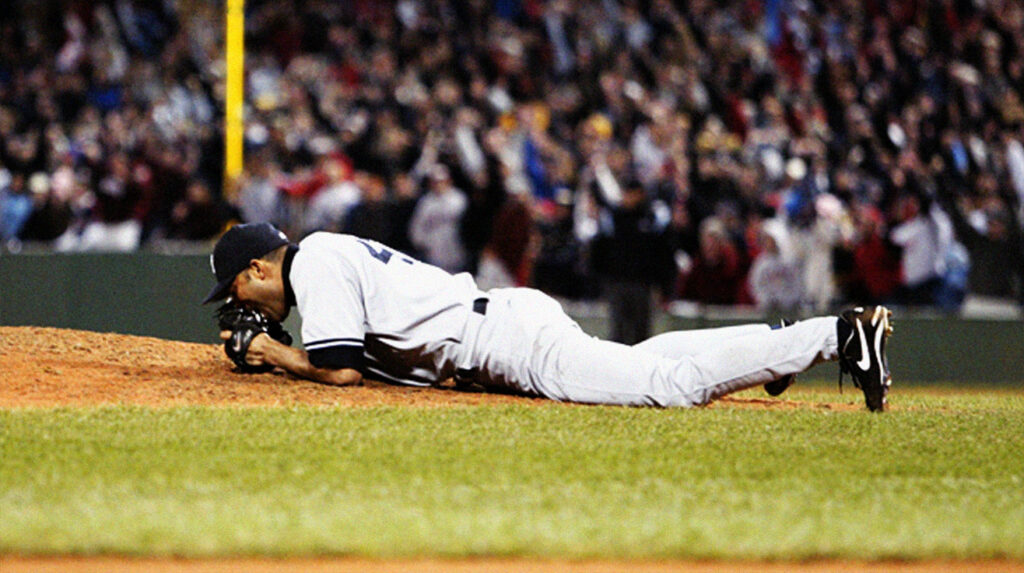
The 2001 regular season was business as usual: 50 saves (a career high), a 2.34 ERA, and his fourth All-Star nod. The Yankees signed him to a four-year, $40 million contract that somehow still seemed like a bargain.
The postseason unfolded against the backdrop of 9/11. Rivera was perfect through the early rounds, and when the Yankees took a 2-1 lead into the bottom of the ninth in Game 7 against Arizona, the fourth straight championship seemed inevitable.
Then everything unraveled. When Luis Gonzalez blooped the series-winning hit just over the infield, the invincible had been defeated.
2002-2004 Seasons
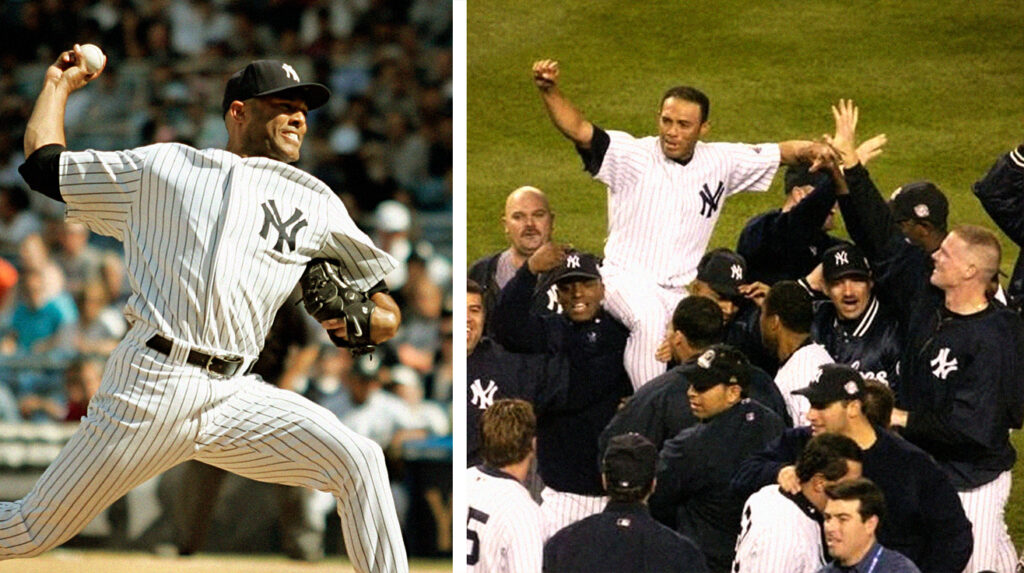
Injuries limited Rivera to just 45 appearances in 2002, making the Yankees bullpen suddenly mortal. He answered in 2003 with perhaps his finest statistical season: a microscopic 1.66 ERA, 40 saves, and a return to October dominance.
When Aaron Boone launched his famous ALCS-winning homer against Boston, it was Rivera who pitched three scoreless extra innings to make it possible.
Then came 2004’s historic Red Sox comeback. The Yankees led the ALCS 3-0 before Rivera blew consecutive saves in Games 4 and 5. Boston completed the miracle comeback, and Rivera tasted rare postseason failure.
2005 and 2008 Seasons
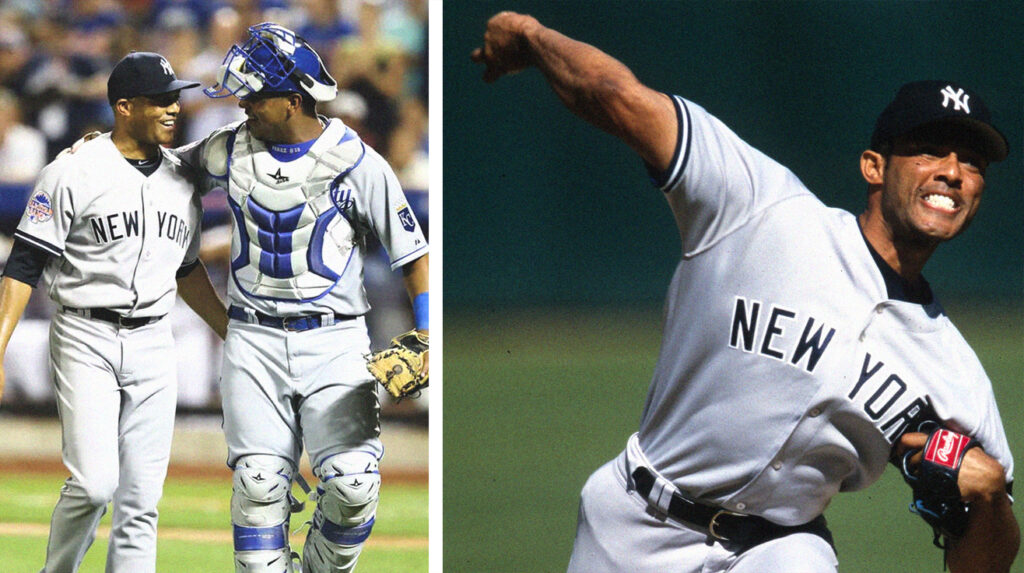
In 2005, at age 35 when most relievers have retired, Rivera posted a 1.38 ERA with 43 saves. The performance earned him the AL Rolaids Relief Man Award and nearly won him the Cy Young.
His cutter had evolved from great pitch to art form. The velocity had dropped, but the command had become almost robotic.
By 2008, Rivera was still dominating at age 38 with a 1.40 ERA and 39 saves. But the Yankees missed the playoffs for the first time in his career.
2009 Season and Fifth World Series Title

At 39, Rivera’s 92-mph cutter remained virtually unhittable thanks to pinpoint command. From June onward, he converted 28 consecutive save opportunities while allowing just three runs during a 40-appearance stretch – a 0.68 ERA that defied aging curves.
The season totals: 1.76 ERA, 44 saves, a WHIP under 1.00. All at an age when most pitchers are in the broadcast booth.
October brought the defending champion Phillies. In Game 6, Rivera closed out his fifth World Series title, a career spanning three decades of dominance.
Final Years and Hall of Fame Induction
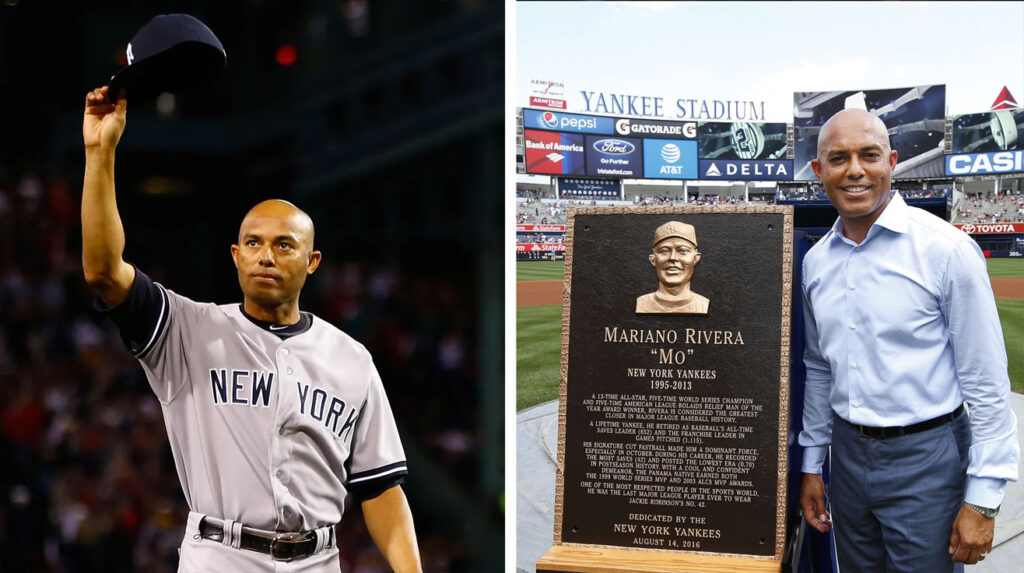
On September 19, 2011, save number 602 pushed Rivera past Trevor Hoffman for the all-time record. He’d finish with 652 saves, a mark that might stand forever.
Rivera tore his ACL in 2012 at age 42. Most careers would end there, but he returned for a 2013 farewell tour where even the Red Sox honored their longtime nemesis.
In 2019, Rivera received 100% of Hall of Fame votes – the first player ever to achieve unanimity. Not Babe Ruth, not Willie Mays, not Ken Griffey Jr. The skinny kid from Panama had achieved baseball immortality.



